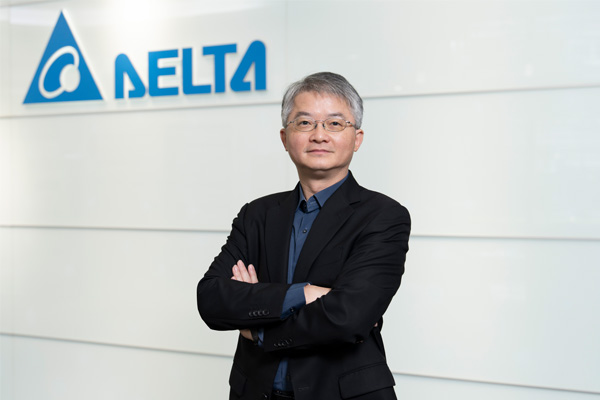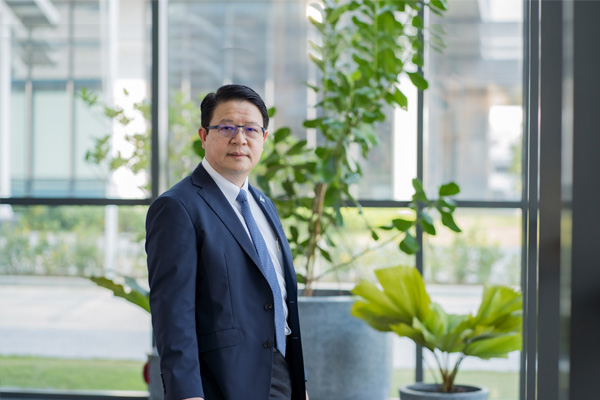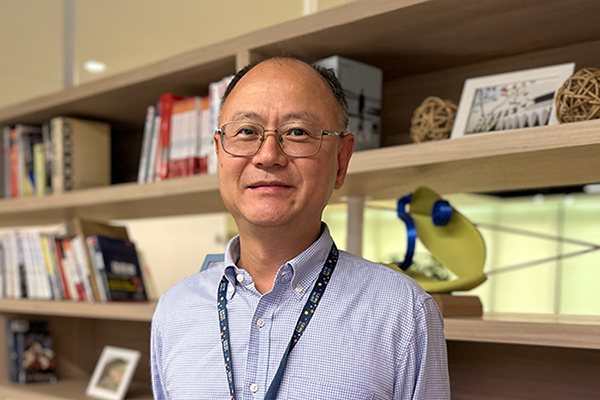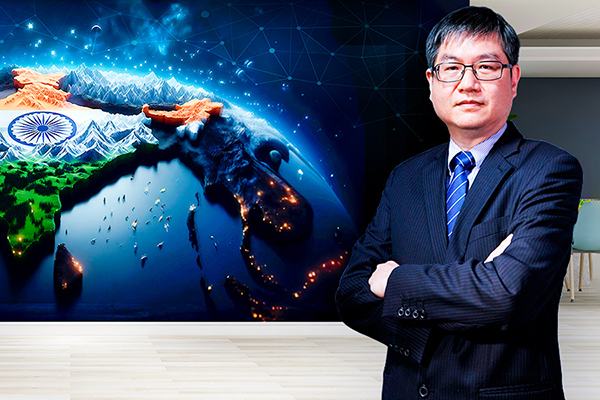Contemporary challenges: “Involution” and “Change” in the China market
“In the past 20 years, the China market has fast-forwarded, unfolding an epic of industrial development almost in the blink of an eye.” At the start of the interview, Mr. Kung painted a vivid picture of the evolving market landscape with a long historical perspective. He noted that the founding of DGC coincided with the deepening of China's reform and opening-up policies, at a time when domestic industries were undergoing a crucial reshaping. The synergy of policy incentives and market vitality provided companies with a rare opportunity to quickly integrate into local industry chains.
In recent years, however, with the rapid rise of local enterprises, competition models have quietly shifted. Companies that cannot continue to deliver irreplaceable value through rigid demand fulfillment and ecosystem collaboration risk becoming marginalized—or even exiting the market. “The next five years will be decisive for Delta's meaningful presence in the China market: either becoming an industry-leading ‘Somebody’ or gradually fading into a ‘Nobody.’”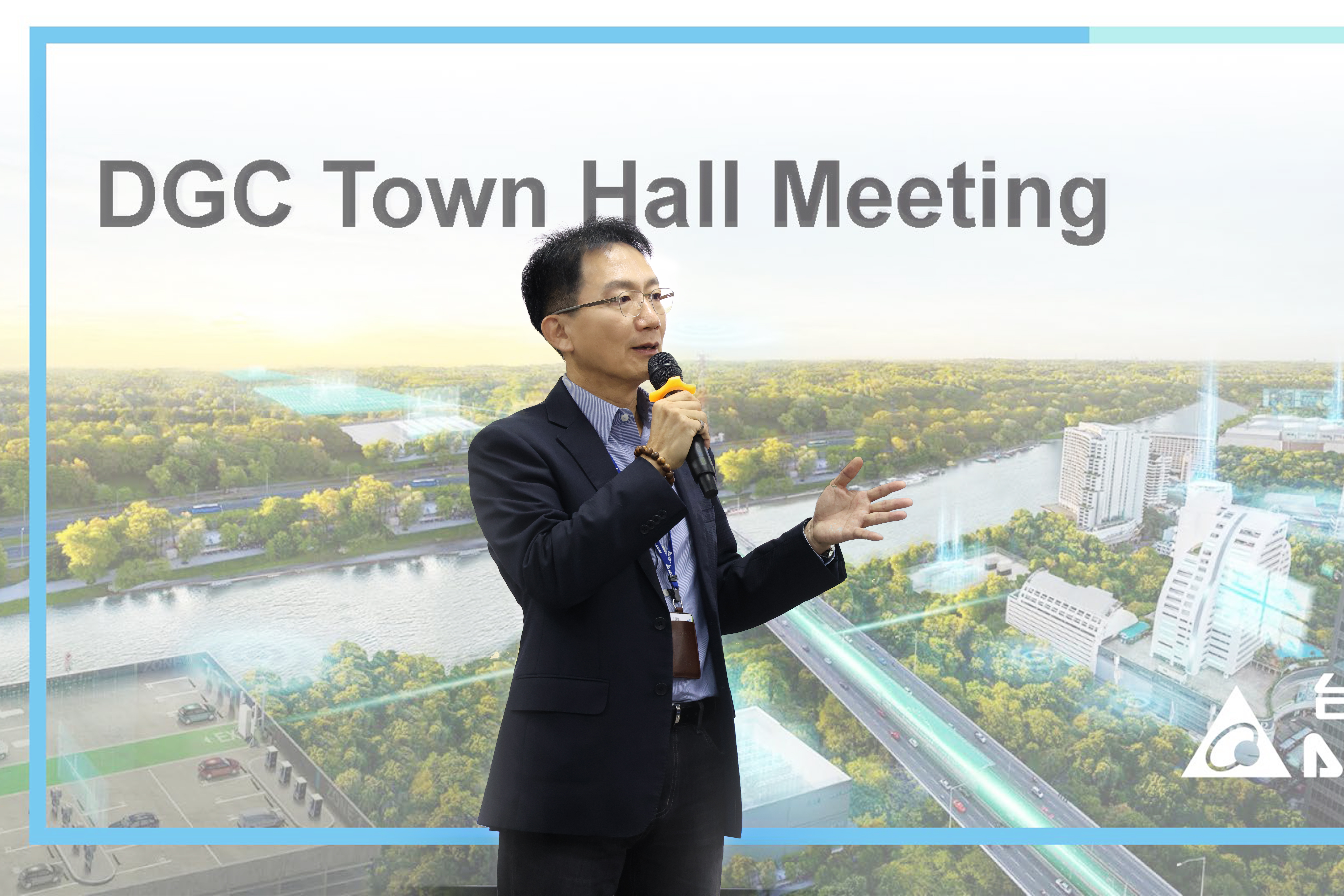 Mr. Kung's inaugural address: navigating China's market “involution” with adaptability to “change.”
Mr. Kung's inaugural address: navigating China's market “involution” with adaptability to “change.”
In this context, DGC faces increasingly urgent challenges centered on two critical fronts: the strategic breakthrough of business model transformation and the foundational construction of talent succession. Frontline breakthroughs and backend reinforcement must advance in tandem—both are indispensable.
Strategic breakthrough: a dual-track mindset—deepening customer value
Leveraging value to reshape the industrial landscape!
Faced with this life-or-death market competition, DGC has adopted a “dual-track” strategy to build differentiated competitiveness. “The essence of a Region is to be the key driver of customer value creation,” Mr. Kung emphasized. Through a customer-centric strategy, DGC has shifted its perspective from broad “industries” to specific “application scenarios.” This “scenario penetration” is rooted in customer needs and follows a “China for China” approach to enhance product competitiveness. With the goal of solving real problems, DGC develops cross-BG field solutions. This not only underpins DGC's value-driven marketing but also provides the foundation for sustained growth in both product strength and solution capabilities.
On ecosystem development, Mr. Kung further explained: the focus is shifting from “key accounts” to building a broader ecosystem, moving beyond single-client development. Instead, DGC is constructing collaborative networks around key industries (such as new energy, semiconductors, and high-end equipment), linking customers, upstream and downstream partners, and technology providers to achieve more comprehensive demand discovery and efficient value replication. In parallel, DGC is enhancing its channel sales teams, optimizing distributor policies and incentive mechanisms to provide clearer value guidance. At the same time, it is restructuring its nationwide distribution network—from Tier 1 and Tier 2 core cities to Tier 3 and Tier 4 industrial clusters, and from traditional manufacturing hubs to emerging economic zones. Through differentiated value creation, Delta's market presence in China adapts alongside ecosystem adjustments, enabling faster channel reach.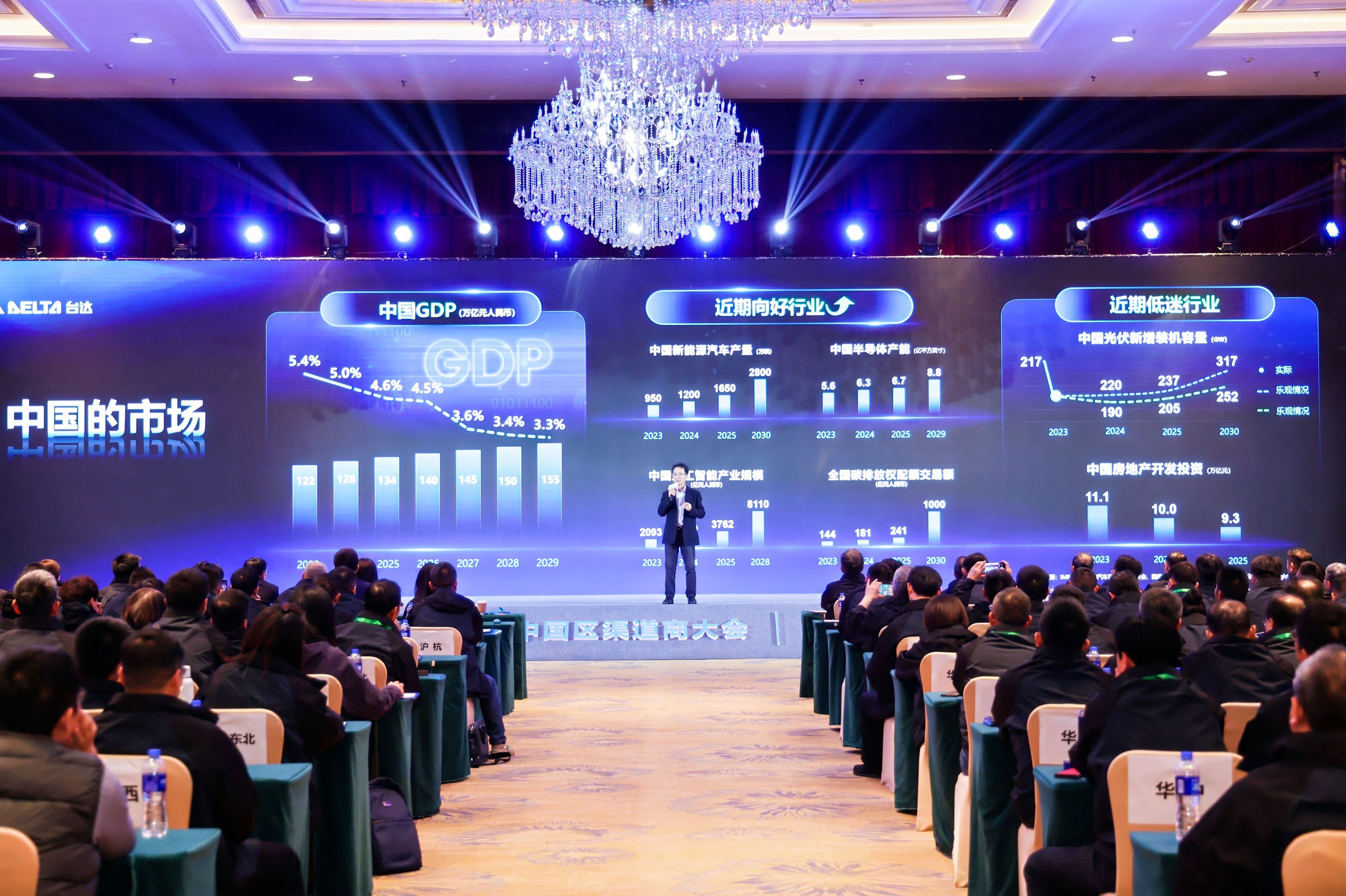 Mr. Kung attended the distributor conference to share insights on China's market trends and Delta's channel strategy.
Mr. Kung attended the distributor conference to share insights on China's market trends and Delta's channel strategy.
Organizational Evolution: from structural adjustments to capability building
Make DGC Great Again!
“The vitality of strategy ultimately relies on organizational capability.” After nearly one year as General Manager, Mr. Kung's reflections on organizational change have grown deeper. He revealed that DGC is advancing a comprehensive restructuring of its Strategic Business Platform (SBP): splitting into two major units—“Product” and “Systems & Solutions”—while reorganizing sales teams based on customer attributes.
This transformation is not a simple departmental reshuffle, but rather the full implementation of a customer-demand-oriented philosophy. Customers no longer require just a single product; what matters is how well DGC can integrate different BG offerings internally so that sales teams can market cross-BG products and solutions. This poses significant challenges to both manpower and capability. To address this, DGC is simultaneously strengthening innovation and operational excellence as dual drivers, while establishing multiple task forces that bring together cross-BG teams to explore industry solutions, introduce AI applications at different levels, and build digital platforms to ensure that knowledge and experience are passed on quickly rather than trapped in individual computers.
Mr. Kung outlined a clear“development roadmap”for his team:
1. Anchor the strategy of“China for China, China for Global”to enhance overall competitiveness.
2. Drive“frontline application implementation”by strengthening collaboration with corporate headquarters, business groups (BGs), and new business development units (NBD), building differentiated advantages.
3. Focus on“talent succession”by refining the rotation mechanism, implementing a Successor Plan and Talent Plan, and enriching DGC's talent pool—ultimately advancing a full transformation toward value-driven marketing.
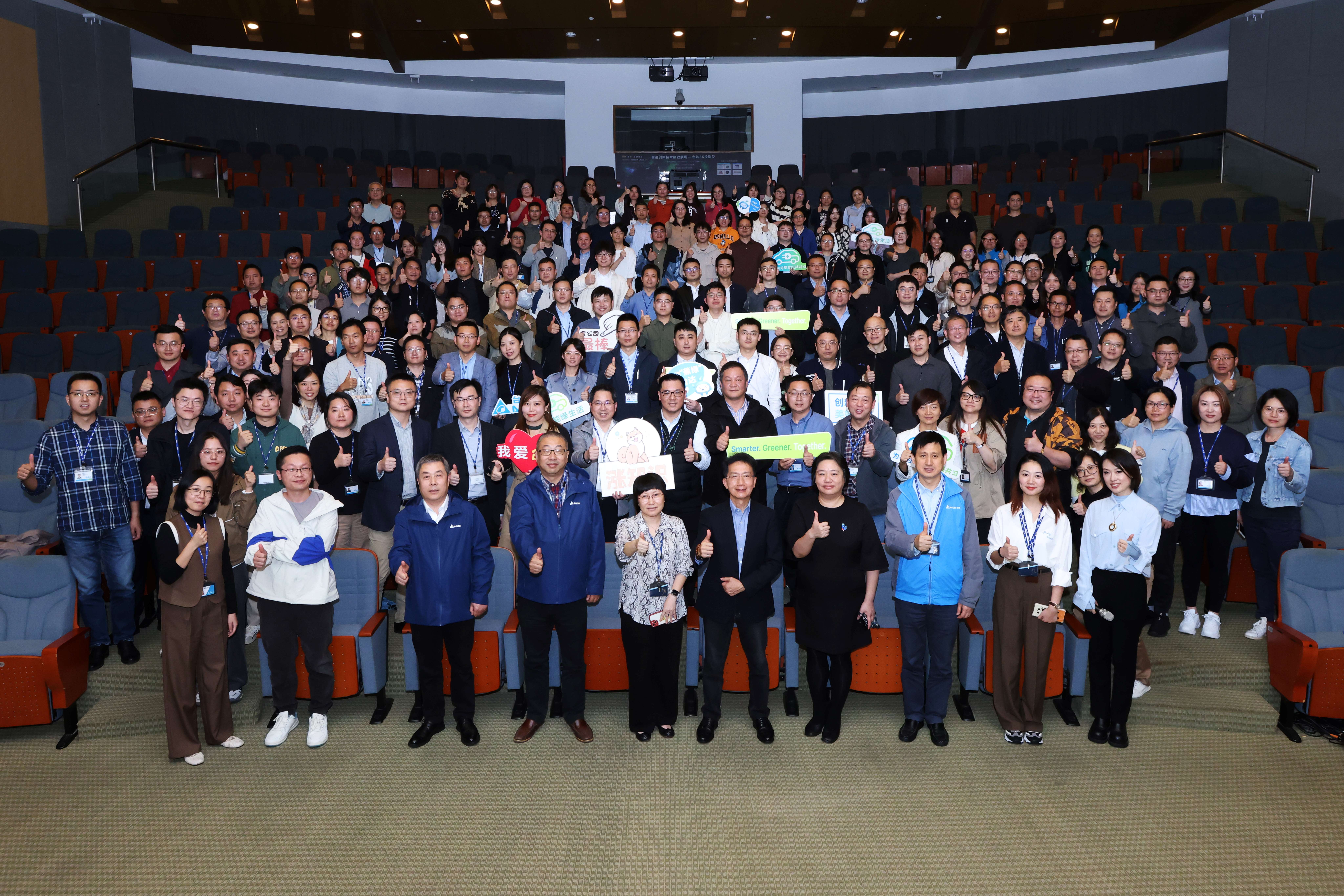 Mr. Kung encouraged the team to focus on talent development and rotation mechanisms to drive value marketing.
Mr. Kung encouraged the team to focus on talent development and rotation mechanisms to drive value marketing.
Global Vision: From “China Practice” to “Global Value”
“Winning in China” is the prerequisite for “succeeding globally.” Mr. Kung elevated the discussion to the broader context of global competition. He stressed that the core competitiveness of enterprises now lies not only in meeting existing demand but also in creating new supply–demand models and driving industry value upgrades.
As Chinese enterprises grow stronger, future global competition will essentially extend from competition within the China market. “Delta's R&D investment and technology accumulation form the most solid foundation for us to compete globally,” Mr. Kung asserted confidently. He pointed to the diverse product portfolio of Delta's eight BGs, continuous innovation capacity, and global regional teams as the cornerstones of DGC's ability to help Chinese customers go international.
Cultural DNA: balancing Pragmatism and Openness to withstand cyclical volatility
At the close of the interview, Mr. Kung shared his career journey, offering perspective on DGC's transformation. From his experience in large-scale expansion and system integration projects at CTCI Corporation and Yieh Phui Steel in Taiwan, to his management roles at multinational corporations such as Eaton, Schneider, and ABB, he underscored that: “An enterprise's competitiveness is essentially the outward expression of its cultural DNA.”
“Delta's most valuable trait lies in striking a golden balance between pragmatism and openness,” he explained. Whether it's attracting top global talent or embracing localized innovation, this reflects Delta's wisdom of “learning from others to strengthen ourselves.” This cultural DNA has deeply influenced DGC's talent strategy: valuing the stability of the core team while boldly introducing new blood. In 2025 alone, four division heads with world-class corporate backgrounds joined, bringing international perspectives, innovative methodologies, and fresh thinking—injecting new vitality into the team.
He particularly encouraged the team: “We must break free from the confines of ‘vertical specialization’ and establish a holistic perspective—crossing product-line boundaries to uncover synergies among technologies, and overcoming geographic limitations to understand differentiated market needs. Only then can we transform from a mere product supplier into a comprehensive solutions provider, ultimately becoming a creator of value that leads industry trends.”
Mr. Kung concluded: “We must deepen Delta's technologies and values in the China market to become an industry leader, while also channeling the insights and innovations from China back to the Group. This is DGC's mission in this era.”















